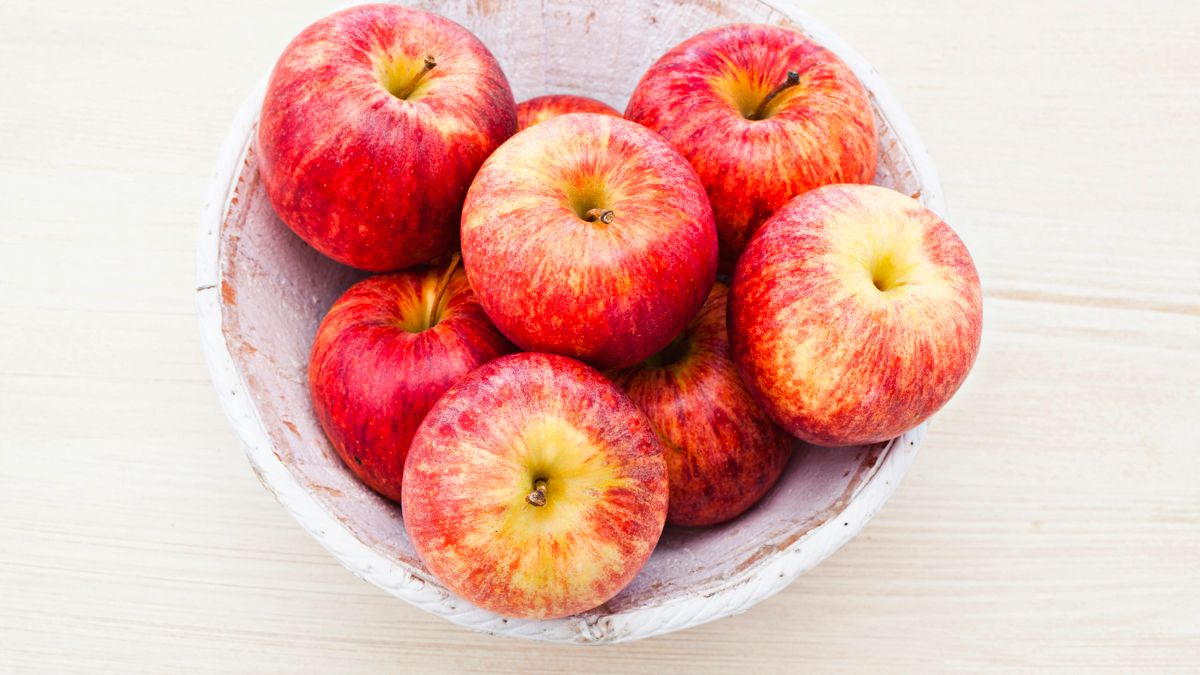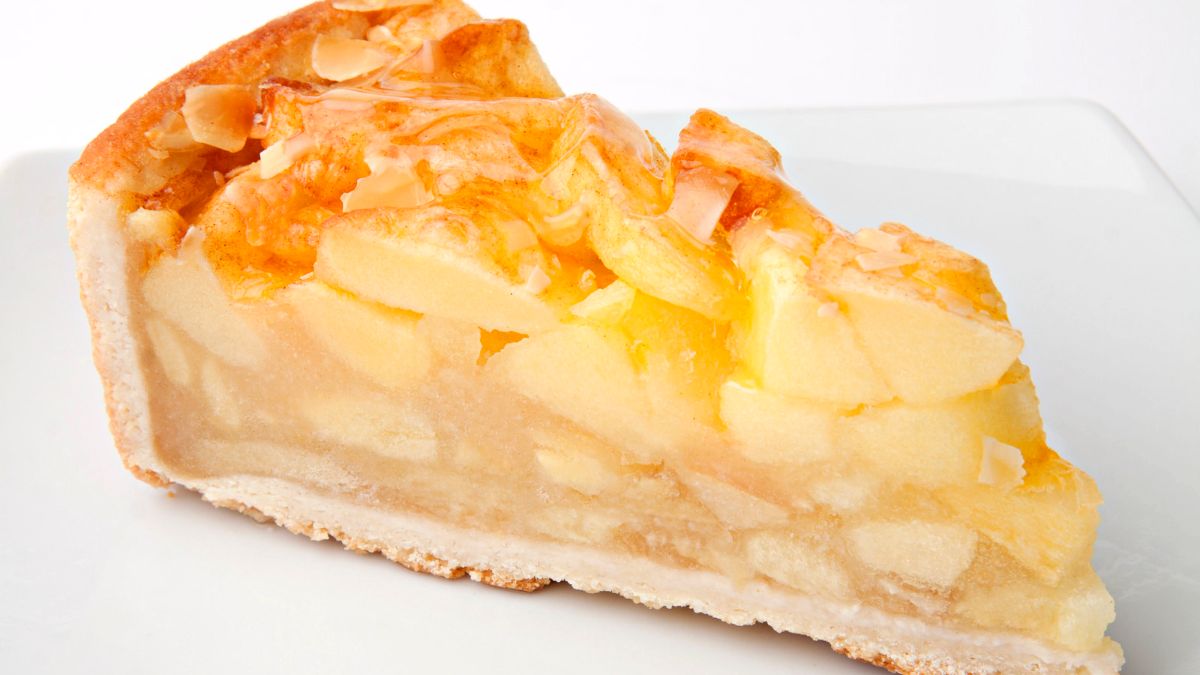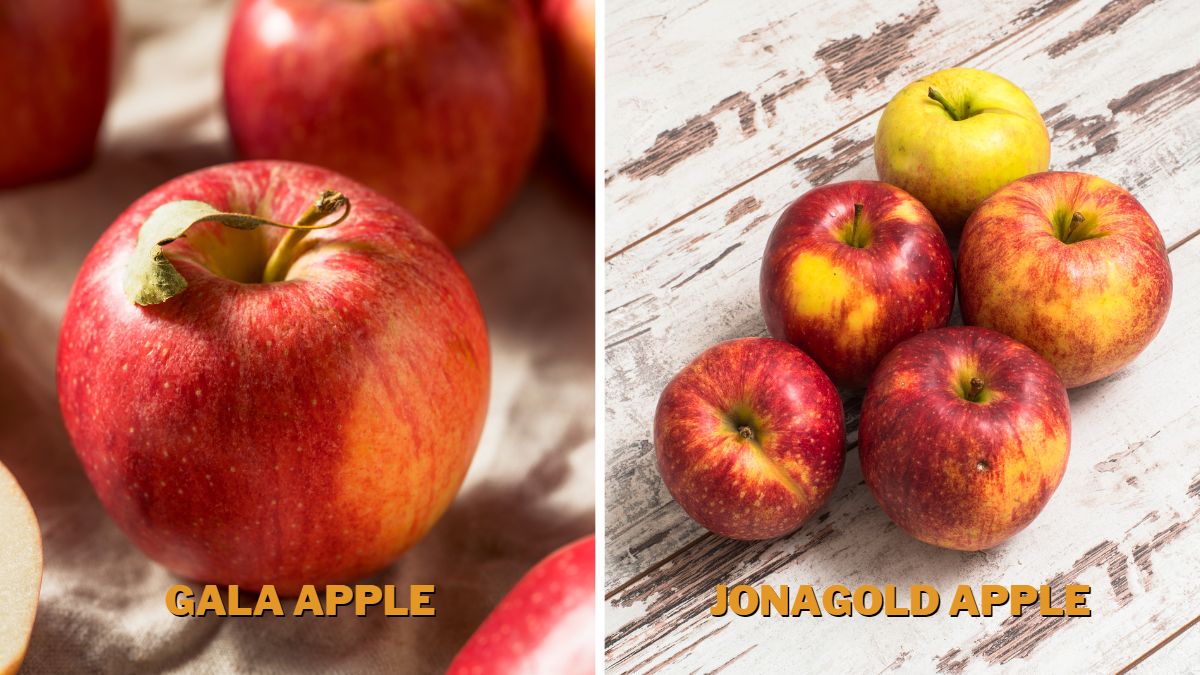Are Gala Apples Good For Apple Pie?

“As simple as apple pie” is a well-founded saying indicating the essence of the dessert. Apple pie is indeed a simple four-ingredient dessert and a signature member of the holiday table. Seemingly any apple type would do, but that is not entirely true, as there are types of apples that work marvelously and others that just won’t do. So, are Gala apples good for apple pie?
Gala apples work excellently as apple pie filling. They are reddish in color, with an expressively sweet flavor and a highly floral, almost exotic aroma. The texture of the gala apples is smooth and stable, and they are great to work with. They don’t get mushy and overly moist but creamy and smooth.
To a great extent, the apple type you use for your apple pie can influence its overall quality. Even though using the wrong type of apple won’t ruin the taste of the apple pie, it could destroy its texture, making it mushy. Gala apples are among the best apple pie choices; therefore, in the following paragraphs, I will explain everything you need to know about them.
Can Gala Apples Make a Good Apple Pie?
Gala apples create an extra sweet and soft texture to your apple pie without making it excessively moist or runny. Another plus of the gala apple is that it is very sweet, reducing the need to add sugar to the filling.
Another great thing about the gala apples is their crisper texture which contributes to a firmer pie filling.
Therefore, add less sugar to the apple pie filling when using the gala apples. In fact, that is a known trick among bakers, using gala apples to save the cost of sugar and still retain the delightful apple pie sweetness.
Although creamy, the gala pie filling is stable and isn’t overly moist, making the pie firm yet perfectly soft.

For apple pie and other apple-containing baked goods, gala apples work perfectly well because of their expressive sweetness and crisp texture. They are also a health-smart choice, as they significantly reduce the amount of sugar you would need.
What Are Some Good Gala Apple Substitutes?
Before I explain this in more detail, I need to say that gala apples are unique, and what they do cannot be completely reproduced with another type of apple. However, some pretty decent substitutes could work just as well. Still, if you are used to gala apple pie, you will notice the difference; not that your pie will taste bad, but it will be different.
One of the best gala substitutes is Jonagold, a combination of Jonathan and Golden Delicious. It has a firm, crisp texture and an expressively sweet and juicy flavor, which makes it perfect for baking. A Jonagold apple pie is very close to gala apple pie but not as sweet.
Jonagold requires you to add more sugar to the apple pie, which isn’t as sweet as the gala. Still an excellent option, nevertheless.

Granny Smith is probably the most recognizable and used type of apple, not only for apple pie but for baking in general. It is sweet and sour simultaneously, with a firm and crisp texture and dense consistency. The granny Smith apples hold their shape great and make excellent apple fillings.
Even though better to eat fresh Honeycrisp apples, they do pretty well when baked, especially in apple pie. Honey-sweet, crisp and stable, they find their place in many apple pie recipes.
Golden Delicious is a tasty and naturally sweet apple, and, like the gala apples, it allows for a reduced sugar amount in the apple pie recipe. On the downside, the consistency of the Golden Delicious is not as firm and thick as that of the other apple types described here.
Winesap is an intensely-flavored, delicious, but somewhat spicy apple, if that makes any sense. Therefore, if you add cinnamon to your apple pie, use this apple variety as it holds well with strong spices.
What Apples Should Not Be Used for Apple Pie?
Don’t use McIntosh, Fuji, and Red Delicious apples to avoid a mushy apple pie. This does not mean that they will ruin the taste of your apple pie, but they will impact the texture adversely. The crust will also soak up the excess moisture, becoming gooey, which may not be what you want in your apple pie.
